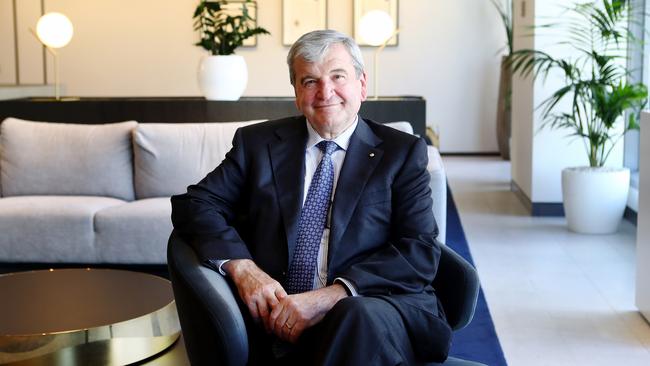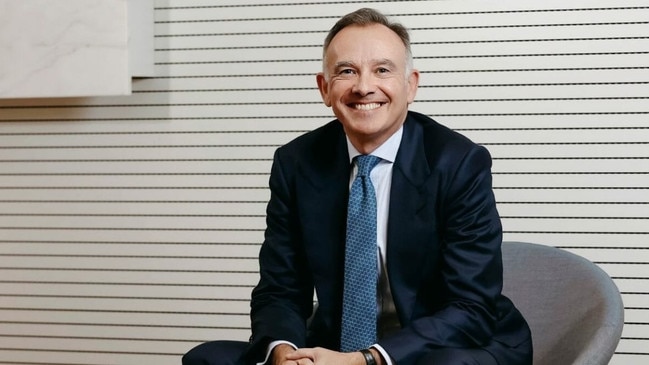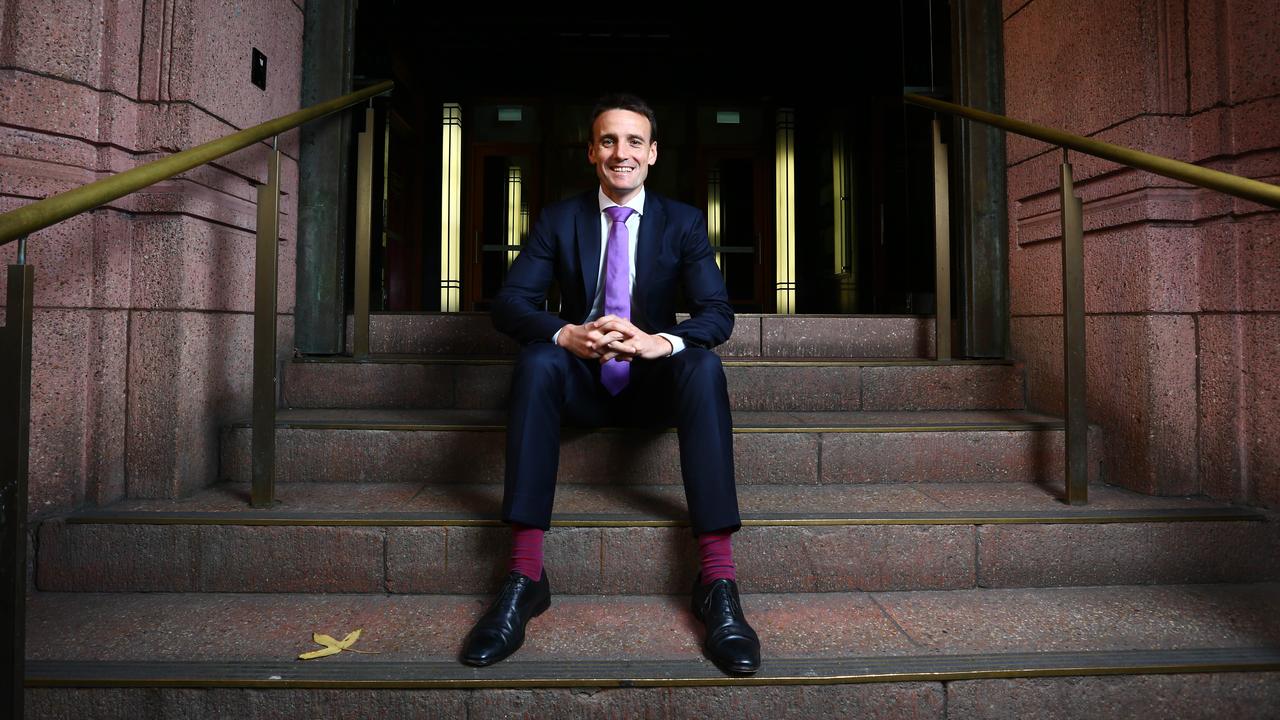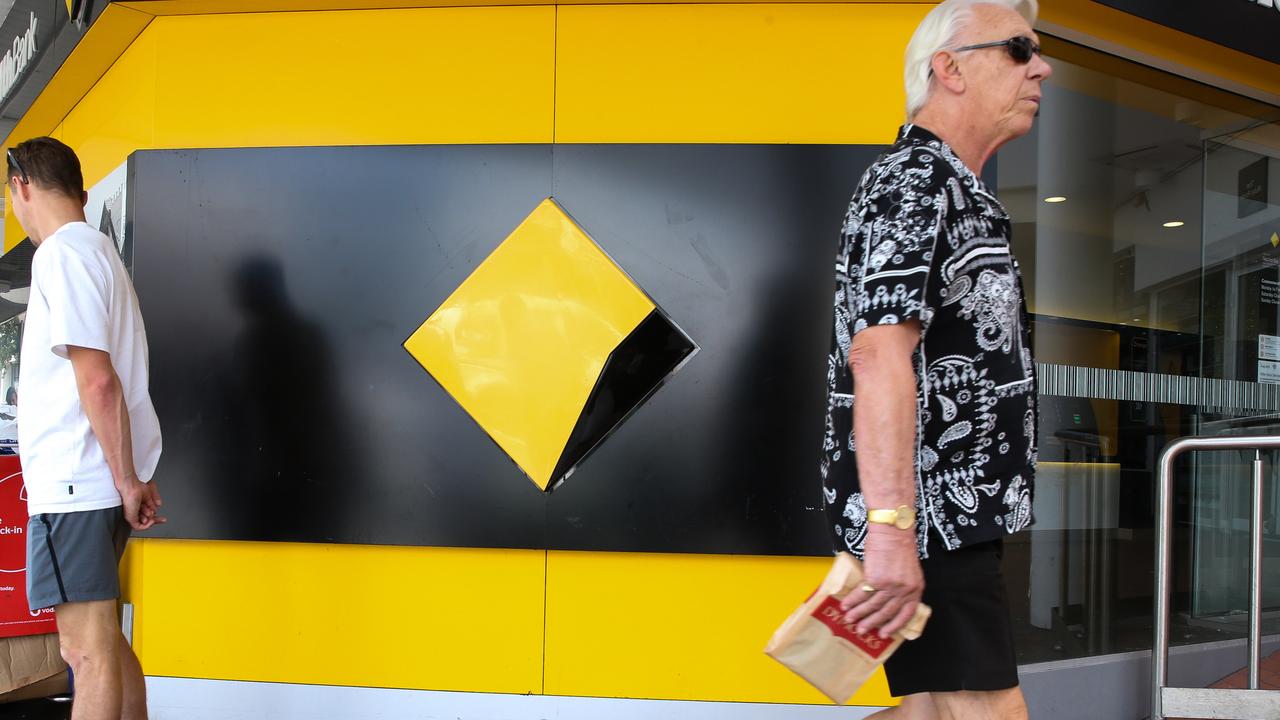Perpetual hit with first strike against remuneration report
Perpetual chairman Tony D’Aloisio has pleaded with shareholders to look at the big picture following a protest vote on executive pay.

Perpetual has been slapped with a first strike against its remuneration report as shareholders at the company’s annual meeting vented their frustration over executive pay and bonuses as the share price hovers at multi-year lows.
The overwhelming majority of votes cast -- 88 per cent -- were against the executive remuneration report, which included a number of bonuses to be paid to top executives just to keep them in their jobs.
Five executives -- Mark Smith, Richard McCarthy, Chris Green, Sam Mosse and Craig Squires -- are to be awarded retention bonuses of between $1.5m and $250,000, for a total $3.1m, as part of this year’s remuneration plan, with the monies to be paid in December, while former boss Rob Adams will pocket a redundancy payment of $470,000 as well as bonuses totalling $1.4m for fiscal 2024.
The retention bonuses were necessary “to ensure the stability of the leadership team over a period of substantial uncertainty for each of the businesses”, the company said in its annual report issued in September.
Facing agitated shareholders at the meeting on Thursday, outgoing Perpetual chairman Tony D’Aloisio pleaded for investors to take a broader view on executive pay.
“I understand (frustration about) the share price, and the whole management team has had the consequence of that in terms of their long-term incentives, including Rob (Adams). But when you look at the culture of the place and the hard work they are doing, you can’t just ignore that as shareholders,” Mr D’Aloisio said.
“We need good people to be really focused on delivering results and delivering the future. They may not (deliver) from time to time, it happens, companies go through these periods, but the important thing for the board is that it maintains a very strong management team and makes changes when they need to be made.
“So I just asked shareholders to take a broader picture when it comes to looking at remuneration. We do not have a system in Australia that simply says there’s no (executive) pay unless shares go up. That’s a big change, and that’s not how Perpetual rewards its executives.”
If the company receives a second strike at next year’s meeting, it will trigger a board spill.
Earlier in the meeting, Mr D’Aloisio acknowledged the importance of the Perpetual brand to shareholders but said the $2.2bn price tag the firm negotiated with KKR for the sale of its wealth and corporate trust divisions included the value of the brand.
The asset manager’s numerous global businesses, which have limited history with the Perpetual name, “further reduce risk from passing the name into private hands”, he told shareholders.
Perpetual in May inked a deal with private equity giant KKR to sell its wealth and corporate trust divisions, along with the 138-year-old Perpetual name, in a deal still to be voted on by shareholders.
Investors critical of the transaction, including money manager Rodney Forrest, have latched on to the decision to hand over one of Australia’s most recognised asset management brand names.

Mr D’Aliosio also raised doubts on the timeline of a vote on the sale of the firm’s corporate trust and wealth divisions to KKR, telling shareholders the board still expected the vote to go ahead in early 2025 but warning there were matters outside of its control, including a determination from the tax office on a hefty tax bill.
New chief executive Bernard Reilly said his priorities on the asset management business were the operating model and the cost base. On costs, Mr Reilly said the firm may look to go further than the savings of $25m to $35m per annum already flagged as part of a simplification program.
“I believe that we can go further than that and am undertaking the work now and over the coming months to determine our plan here,” he said.
Mr Reilly also committed to developing a turnaround plan for the UK-based J O Hambro business, which has been hit by material outflows since its acquisition. Perpetual acquired J O Hambro as part of its Pendal buy in 2023.
Mr Reilly stepped into the CEO role at Perpetual in early September and has been tasked with getting the sale of the wealth and corporate trust businesses to KKR over the line, in the face of fierce shareholder criticism.
If the deal gets the green light, investors will be left with a funds management business with $222bn in assets across seven brands.
Earlier this week he told The Australian that he would give greater autonomy to the asset manager’s boutique investment houses as part of a push to cut costs in the Australian business and stem the outflows that have plagued the 138-year-old firm.
Mr Reilly linked the anticipated recovery in flows to an improved investment performance that he said would come from providing the firm’s numerous global boutiques with a degree of independence.
“We need to be a more efficient business … (we are) a multi-boutique, global asset manager; and the operating model I’m working on at the moment is that I want to make sure the portfolio managers have the autonomy to deliver alpha for clients,” Mr Reilly said.
“The cost base is one that we need to make sure is right sized for the business going forward and there’s a bit of work to do on that.
“On the distribution strategy we have for a global asset manager, there’s areas of focus and refinement that we need to make. We need to make sure we’ve got the right resource allocation in Europe and in Asia Pacific.”
Giving more autonomy to the boutiques would allow for a “slimmed down” head office in Australia, he said.
Earlier on Thursday, Perpetual released its first quarter update showing flows were net positive for the first time in a year over the three months to September 30, driven primarily by inflows into its Pendal funds.
But its overseas fund managers, including Barrow Hanley in the US and J O Hambro in the UK, all suffered net outflows in the quarter, with the negative flows partially offset by market gains.
The asset management division reported a 3 per cent lift in assets under management to $222.3bn, driven primarily by stronger global equity markets, which added $12.7bn to its assets.
Net inflows added a further $400m to overall assets, with Australian-based Pendal doing the heavy lifting, delivering close to $4bn in net inflows. Perpetual acquired rival Pendal in a $2bn takeover that was completed in early 2023 and left the asset manager saddled with debt.
Outflows in US-based value investor Barrow Hanley worsened to $2.1bn in the quarter and were partially offset by favourable market movements that lifted its assets under management to $78.5bn.
Outflows at J O Hambro hit $1.6bn over the three months, while ESG specialist Trillium suffered outflows of $200m.
Perpetual shares were down 0.6 per cent at $19.64 in early afternoon trade. The shares are down 44 per cent on five years ago.




To join the conversation, please log in. Don't have an account? Register
Join the conversation, you are commenting as Logout